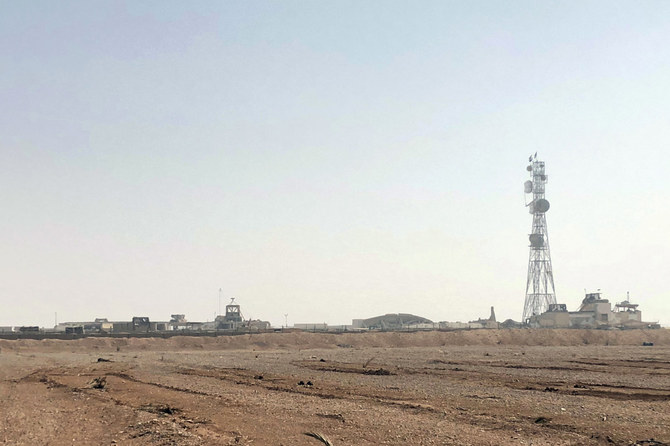BEIRUT: Iran-backed groups blew up a gas pipeline in Syria’s Kurdish-controlled northeast near a US base Thursday, a war monitor said, as regional tensions grew following Israel’s war with Gaza-based militants.
Iran-backed groups “blew up the gas pipeline near the Conoco gas facility,” said the Syrian Observatory for Human Rights. The Observatory’s director Rami Abdel Rahman told AFP the blast had gone off close to a US base.
US-led coalition forces, which entered Syria in 2014 to fight the Daesh, have set up several bases in Syria including in the Al-Omar oil field, the country’s largest. They are also deployed at the Conoco gas field, and both are in Kurdish-controlled territory.
Flames rose from the site of the explosion, the British-based monitor with a large network of sources inside Syria reported. But it said there had been no casualties.
On Wednesday, CENTCOM said it had shot down two drones and damaged a third in Iraq over the past 24 hours, with allied troops suffering “minor injuries” in one incident.
It did not say who launched the drones, but pro-Iranian groups have threatened to attack American troops in Iraq because of Washington’s support for Israel in its war with Hamas.
The attacks in Iraq and Syria come on the heels of a strike on a hospital in Gaza that left hundreds dead on Tuesday. Hamas has blamed Israel for the attack, which in turn has said that another Palestinian armed group was responsible.
The hospital strike caused outrage across the region, with thousands taking to the streets in Arab capitals in support of Palestinians and condemning Israel.
Gaza has been hit by a relentless barrage of Israeli fire in retaliation for the October 7 Hamas militant attack, which Israel says killed at least 1,400 people, most of them civilians.
Some 1,500 Islamist fighters were killed in clashes before the army regained control, the Israeli military said.
Israeli bombing of Gaza has since killed more than 3,700 Palestinians, most of them civilians, according to the health ministry.




























